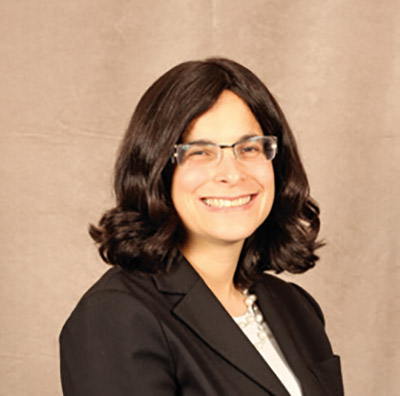
In contrast to the Torah’s silence about the childhood of Avraham Avinu, Parshat Shemot is rich in information about the origins of Moshe Rabbeinu. In fact, the second chapter of Sefer Shemot highlights two competing truths that emerge in all children’s lives, and analysis of the parsha lends insight into approaches to strengthen children’s midot tovot and strength of character.
Rav David Tee, in his article in Megadim Volume 22, has noted that the second chapter of Shemot is structured around a series of illuminating parallels between Moshe’s childhood experiences and the adult he becomes. Throughout the first half of the perek, Moshe benefits from the caring of several older people in his life—his mother, his sister and Bat Pharaoh—who hide him, wait for him and rescue him. In the second half of the perek, Moshe grows up—“vayigdal Moshe”—and becomes an adult who has learned from experience to take risks to protect and care for other people. As Yocheved hid Moshe in his infancy, Moshe hides the body of the Egyptian taskmaster after killing him to protect a slave. As Bat Pharaoh had pity on him when she discovered him by the water and took risks to save him, he later feels compassion for the seven girls whom he encounters at the well and takes a stand on their behalf.
This insight into the development of Moshe Rabbenu underscores the ways in which children develop as compassionate, strong people through their experiences of love, safety and kindness. It reminds us that more than anything else a parent can provide, the feelings of trust and caring that a child experiences shape her character and her lifelong relationships.
However, there is a second, less-intuitive message of the perek as well. It is worth noting that Moshe becomes great only after leaving his childhood home (“vayigdal Moshe vayetze el echav”); with this yetzia he begins to take a stand against slavery by killing the Mitzri. His development as a leader who stands up to injustice—even when it only affects a group of girls he doesn’t know—intensifies after he flees his homeland altogether in pasuk 15. His original yetzia, in pasuk 11, marks the beginning of his heroism, and in the next four pesukim he is described again as leaving, and then as fleeing. The perek makes clear that Moshe’s greatness and strength is dependent on his achieving a measure of independence and distance from the people who cared for him so lovingly in the first half of the perek.
In school and at home, there are times that our knowledge of our children and students actually holds them back by either implicitly or explicitly limiting their horizons. A friend who works in pediatrics explained to me that pediatric medicine is essentially distinct from adult medicine because there are fundamental differences between the ways that illnesses manifest and treatments are experienced in children and in adults, in part because of children’s constant growth and development. Among other differences, children are vastly more physically resilient than adults. The same is true of children’s emotional and spiritual growth; children and teenagers have the capacity to change and develop at dizzying rates. As deeply as we know and love our children and want to set them up for success, their growth demands that we step back, believe in their resilience and give them opportunities for genuine self-definition and independence.
In my relationships with adults, I know that an individual is not likely to become vastly different over the span of four years. In school, by contrast, my default assumption is that a ninth grader will experience dramatic, incredible growth over the course of high school. Her friendships, interests and personal qualities will flower in unforeseeable ways, and there is no way to fully imagine at the start of high school who her 12th-grade self will be.
That growth is supported and nurtured by helping children and teenagers feel comfortable continually redefining themselves, rather than feeling a need to conform to certain perceptions of who they are. In school, encouraging genuine independence can mean allowing students to make real choices about their academic and personal paths, listening carefully and implementing their ideas for new classes and new opportunities into the life of the school. Most of all, it means being careful not to typecast students by the interests and qualities that they’ve demonstrated in the past, but honoring their evolving goals for themselves and enabling them to take risks to achieve those goals.
Parshat Shemot reminds us of the most elusive balance in parenting and education: being both nurturing and open-minded, aware of each child’s personality while remembering that life is long and people’s capacity for change is unlimited. Moshe Rabbeinu became himself as a result of the kindnesses of others and his own ability to achieve independence and chart his course; the same is true for every child.
By Rivka Kahan
Rivka Kahan is the principal of Ma’ayanot Yeshiva High School for Girls.










